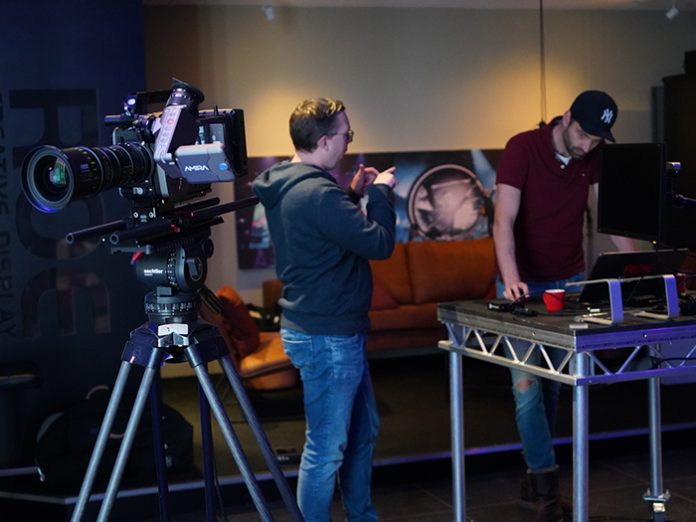
When virtual production and, in particular, mixed reality production took flight in early 2020 ARRI and ROE Visual came into contact and connected to develop a better understanding of the impact of this technology on both LED volumes and camera performance. This mutual understanding has led to the development of a continuous testing programme.
Early 2020, when Europe had to face the first COVID-19 measures, it became clear for ARRI and ROE Visual that virtual production would become an essential technology. Both companies, leading in respectively image caption and LED technology, realised they are a vital link in the chain in developing and disseminating knowledge in this field.
Not put off by the impossibility of meeting regularly, and in person, the ARRI and ROE Visual teams gradually developed the idea of a joint testing program. Working under NDA to protect the intellectual property involved, both companies created a safe and open environment wherein the technical teams could openly share their thoughts and insights.
“We started this cooperation just by spending some hours on zoom immersing ourselves in the related professional fields and becoming familiar with each other’s technology. This exchange of knowledge was beneficial,” explained ROE Visual EuropeTechnical Director, Victor Kortekaas. “Soon we realised we did touch on the same subjects, only had not yet developed a common vocabulary to describe it.”
The cooperation resulted in the implementation of two identical test environments, one in Ismaning near Munich at the premises of ARRI, one in Leek at ROE Visual Europe. These set-ups comprise a Ruby LED wall and an AMIRA camera. The involvement deepened during the regular recaps of the technical teams, led by Victor Kortkaas and Andreas Oestreich, responsible for Software Development for Mixed Reality Production Solutions at ARRI, and touching on LED panel and camera behaviour.
“It was basically about what happens internally in the LED volume and the camera, testing from theory to practice. But we also tested colour and colour processing, how the colour gamut relates to the camera’s capabilities, how to optimise syncing the LED with the camera shutter, and gamma curves. We also were able to test topics like artefacts, scan lines, refresh rates, and multiplexing,” concluded Kortekaas.





